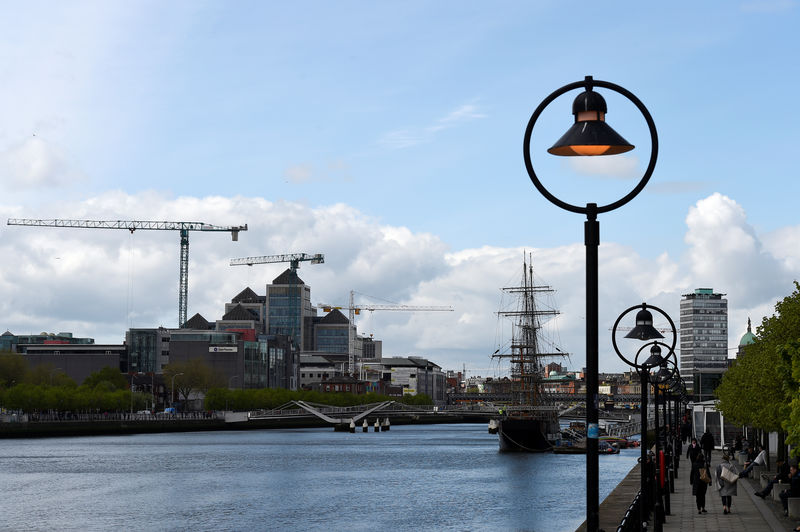DUBLIN (Reuters) - Irish manufacturing grew in April at the slowest rate since the aftermath of Britain's vote to leave the EU, a survey showed on Wednesday, as new orders expanded more moderately in a Brexit-related record month for stocks of finished goods.
Ireland's fast-growing economy has weathered the uncertainty created by the June 2016 vote, with the impact so far mainly limited to a ramping up of pre-production inventories in recent months ahead of the original end of March date for Britain's departure from the bloc.
However, the AIB manufacturing purchasing managers' index slipped to 52.5 in April from 53.9 in March, the lowest level in two-and-a-half years, as panellists reported weaker demand from home and abroad.
"The reading of 52.5 is still consistent with solid growth in the sector. Despite falling in April, the Irish manufacturing PMI continues to outperform its Eurozone counterpart, with stood at 47.8 in its first reading in April," AIB Chief Economist Oliver Mangan said.
Mangan also pointed to the fact that another month of growth extended the run of consecutive expansion to almost six years, while the sector slumped to a similar level in January before bouncing back.
Attempts to mitigate any potential supply disruptions from Brexit also continued in April with holdings of post-production inventories increasing at the fastest rate in the 21-year series history.
